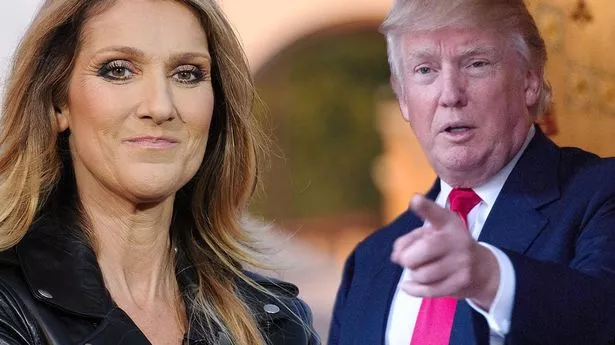When it comes to copyrighted music, numerous regulations dictate its use, and breaches of these regulations can sometimes cross into criminal territory. The situation becomes even more poignant when such music is co-opted for political campaigns, and the original artists publicly denounce these actions.
Recently, Celine Dion took a stand against Donald Trump for employing her renowned track, “My Heart Will Go On,” without securing her consent. So, what exactly transpired?
Striking a Discordant Note with Celine Dion
With the U.S. Presidential race in full swing, candidates are leveraging every opportunity to captivate the electorate. This is an arena where Donald Trump excels, adept at harnessing attention to bolster his agenda. During a recent rally in Bozeman, Montana, Trump played Dion’s “My Heart Will Go On” while his supporters awaited his entrance on stage, a move that ignited a response from Dion’s team.

This action was met with strong disapproval from Dion’s representatives, who expressed their dissatisfaction through a post on X. Their statement reads:
“Today, Celine Dion’s management team and her record label, Sony Music Entertainment Canada Inc, discovered the unauthorized use of her song. This use was neither approved nor endorsed by Celine Dion. …And really, that song?”
The Rhythm of Rights: Battling Unauthorized Use
Artists invest immense effort into their creations, and it is only logical that their intellectual property rights be upheld. Legislation is in place to govern the use of copyrighted music, granting artists control over how their work is utilized and ensuring they receive financial benefits from it.
The unapproved use of Celine Dion’s song by Trump has incited significant criticism and backlash against political campaigns. Other artists, including Queen and the Rolling Stones, have similarly voiced objections to unauthorized uses of their music by Trump’s team.

One might ask: why is obtaining permission to use such music so challenging? The answer is straightforward: some individuals either disregard the need for authorization or deliberately choose to use the music despite potential consequences.
Furthermore, artists retain the right to deny access to their works, even when offered monetary compensation. As the debate over artistic rights versus political expression unfolds, the outcome remains to be seen.
Concluding Reflections
Celine Dion’s courageous stance in confronting Donald Trump’s unauthorized use of her song is a notable act of defiance. It underscores that no one is above the law or entitled to infringe upon artists’ rights for personal or political gain. Dion’s bold action also sets a precedent for future politicians who might consider leveraging artists’ influence to further their agendas.



